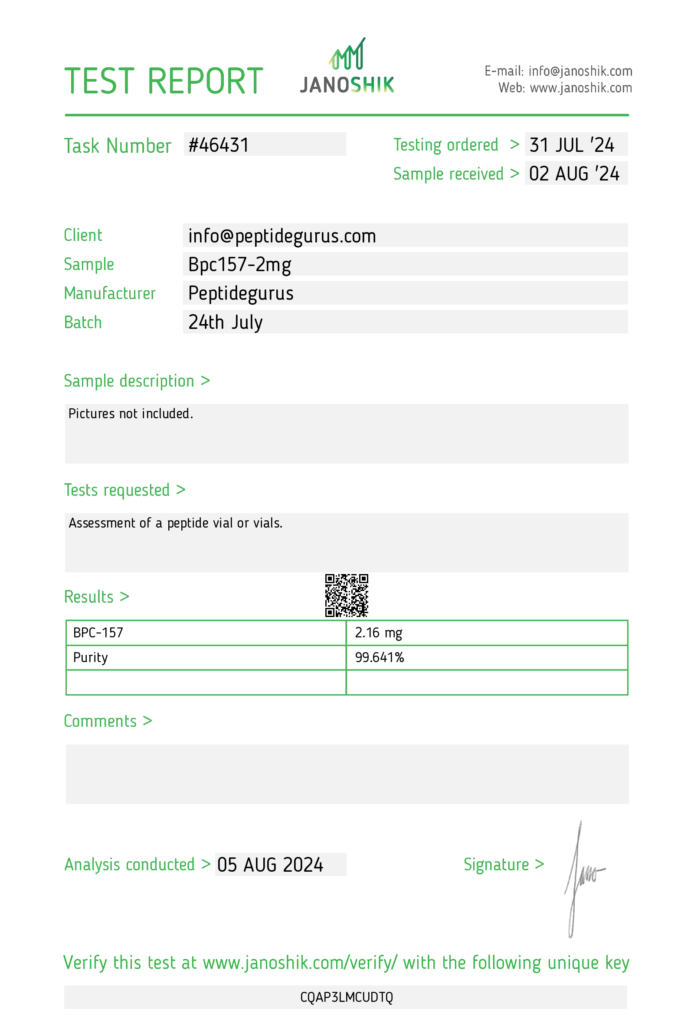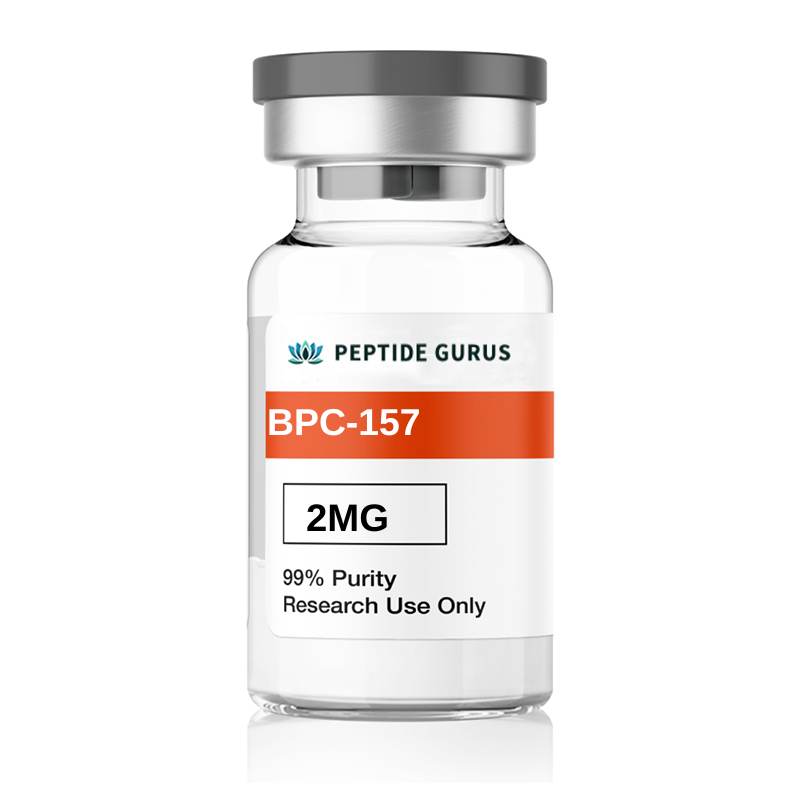




Categories: Peptides and Their Dosages
BPC-157, a stable gastric pentadecapeptide, has garnered attention in scientific circles for its remarkable healing properties across various tissues, including muscles, tendons, and ligaments, as well as its therapeutic effects on inflammatory bowel disorders like ulcers and Crohn’s disease.
Product Usage: BPC-157 is designated strictly for research purposes, intended for in vitro testing and laboratory experimentation only. It is not for human or animal use, and handling must be conducted by licensed, qualified professionals. This compound is not to be misclassified as a drug, food, or cosmetic.
Introduction
BPC-157, derived from a protein found in the stomach, is known for its profound body-protective benefits, particularly in accelerating recovery and healing. This peptide has shown efficacy in enhancing the healing of wounds and injuries in muscles, tendons, and ligaments, and it offers promising potential in managing and treating gastrointestinal conditions such as leaky gut and Crohn’s disease.
Comprehensive Overview and Research Applications
Tissue Healing and Regeneration
BPC-157 promotes the healing of wounds by facilitating the rapid spread and proliferation of fibroblasts, which are crucial in developing the extracellular matrix during the repair process. Additionally, its ability to improve blood vessel growth enhances the healing rate of injured tissues by ensuring an adequate blood supply, which is essential for delivering nutrients and removing waste products.
Gastrointestinal Health
In the realm of gastrointestinal health, BPC-157 has proven effective in protecting against and healing gastric ulcers and inflammatory disorders such as leaky gut and Crohn’s disease. It acts systemically in the digestive tract to enhance mucosal defense mechanisms and repair damaged tissues.
Anti-inflammatory and Cytoprotective Properties
BPC-157 exhibits significant anti-inflammatory properties, making it an excellent candidate for treating conditions characterized by chronic inflammation. Its cytoprotective properties are particularly notable in the GI tract, where it helps maintain the integrity of mucosal barriers and prevents the harmful actions of pepsin and other digestive acids.
PeptideGurus is a leading supplier of American-made research peptides, offering top-quality products at competitive prices. With a focus on excellence and customer service, they ensure a secure and convenient ordering process with global shipping.
CONTACT